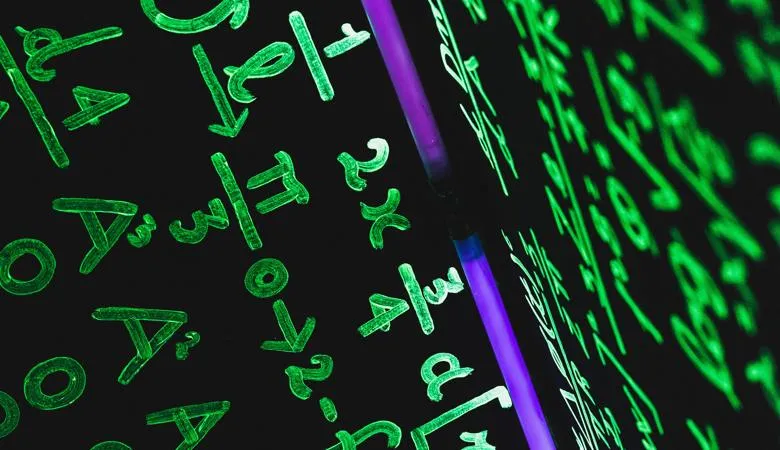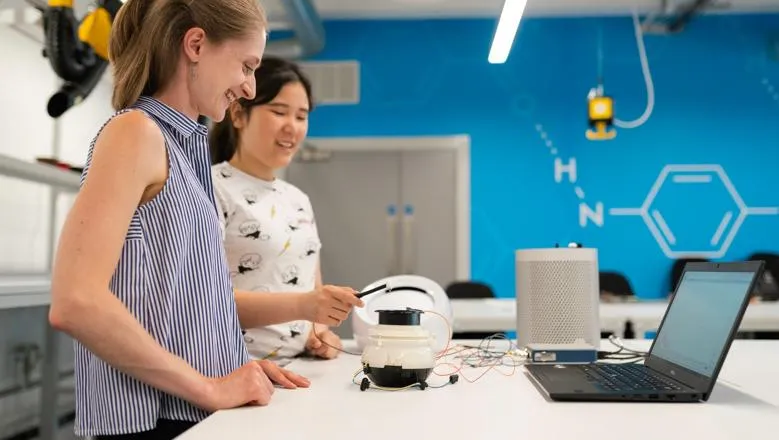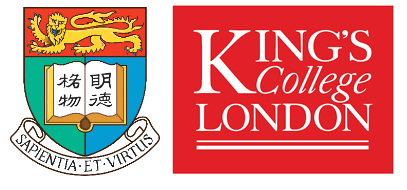

Science | Technology | Engineering | Mathematics
Stem student stories from king's college london, how to apply for a mathematics phd at king’s: a step-by-step guide.
November 18, 2021 Lucy Emanuel Mathematics , Postgraduate 0

Starting Your Application
Your application will be submitted through King’s Apply . The first step is to create an account, though don’t be intimidated by the long list of titles, the standard ones (Ms, Mr, etc.) can be found by scrolling down slightly.
Course Finder
Once you have registered an account, you will be sent to the course finder, where you’ll need to select your programme. Typing in ‘maths’ does not work – only ‘mathematics’. Statistics must be searched for separately. You can find the applied programme by typing in your research group but be careful not to select an MSc or physics course. Several options will appear, but the correct courses are:
Applied Mathematics Research: Disordered Systems/Financial Mathematics/Probability/Theoretical Physics MPhil/PhD;Pure Mathematics Research MPhil/PhD;and Statistics Research MPhil/PhD.
Start Dates and English Language Requirements
After selecting your course, you will be asked to pick a start date. We will usually only consider applications for entry on October 1st. Other entry dates are exceptional and are only granted for deferrals or reasons relating to funding. We will not offer any internal or research council funding at these dates and may ask applicants to change this entry date or reject them outright.
The subsequent question, on English language requirements, is important for entry if you are an overseas applicant, you must prove that you meet the standard needed ( Band D ).
Residency, Nationality, Education, Employment, and References
These can be done in any order. The section on residency and nationality is necessary for visa reasons as well as determining your fee category. Based on your answers, you will be given a fee status assessment. You can ask for this to be reviewed after your application is submitted.You will also need to submit your education (usually just your BSc/MSc institution and classification) and employment history, as well as contact details for two referees.
Research Proposal
This may seem like the most daunting and important part of your application, so it is a good idea to discuss the level of detail expected here with the admissions tutor (and, for Pure Mathematics, a prospective supervisor). If you have already discussed your planned area of research with them, they may not expect you to write more than a few sentences.
We expect applicants to tick boxes 4 and 5 if they hope to be considered for funding from the department, including research council funding. Funding is allocated to applicants on merit, and admissions tutors will decide the source of funding that a student receives – this may not reflect what the applicant selected here. Funding offers will usually be sent out from March. There are also several centrally administered PhD funding schemes at King’s , shared across the university.
Attachment Summary and Submission
Make sure you have included everything that you wanted to at the attachment summary and check everything that you have written. Once you have done so, and are happy with your application, you are ready to submit, and can expect to hear from us shortly.
If you have any questions about any of this process, be sure to submit them to Gage Kumar Rull, PGR Programme Officer at [email protected].
- mathematics
Be the first to comment
Leave a reply cancel reply.
Your email address will not be published.
Save my name, email, and website in this browser for the next time I comment.
Copyright © 2024 | WordPress Theme by MH Themes
Apply to the KCL MPhil/PhD Mathematics Program
PGR Admission Tutor
The Disordered Systems group is constantly engaged in the supervision of PhD candidates in Mathematics and Applied Mathematics within our Department. All applications are processed through the King’s appplication system, accessible from the link below.
King’s application system
PhD projects
Exploring the non-equilibrium states of matter.
Status: Open.
The studentships are funded for 3.5 years and include Tuition Fees, a Stipend at the UK Research Council rate (plus London weighting) and an allowance for research consumables and travel.
The primary objective of this Ph.D. project is to delve into some of these examples using the tools of theoretical physics, mathematical physics and probability theory, with the emphasis on a precise and detailed understanding. Disordered interacting quantum systems offer a particularly rich phenomenology. In particular, the interplay between disorder and interactions may lead to the so called many-body localized phase where the approach to equilibrium is halted by emergent conserved quantities. The physical characteristics of this phase have been explored intensively since more than a decade and the field is probably reaching maturity from a phenomenological point of view. In contrast, the mathematical understanding remains very incomplete, reflecting into the fact that several fundamental aspects are still intensely debated. There is thus a clear need for the development of a better mathematical theory and the search for new techniques. A direct goal of this project will be to bring the theory on much firmer grounds. Moreover, from a broader perspective, the hope is that these contributions eventually lead to a more profound and cohesive understanding of non-equilibrium states of matter as a whole.
How to apply — The ideal candidate is a very motivated student with a solid background in either applied mathematics or theoretical physics. Most importantly, the successful candidate is expected to have some taste for deriving rigorous mathematical results. This position is open to both Home and Overseas students. Applicants should have a 2:1 or first-class undergraduate degree, or an MMath, MSci or Master’s degree with Merit and high grades in modules relating to the research area. A solid background in either applied mathematics or theoretical physics as well as some taste for deriving rigorous mathematical results are expected. To be considered for the position candidates must apply via the King’s Apply online application system . Please indicate François Huveneers as your desired supervisor, Disordered Systems as your desired research group and the project title in your application and all correspondence. A guide on other application details can be found here . Direct link to the application page
The mathematics of adaptive, stable and robust Artificial Intelligence
The studentship covers tuition fees for Home/UK students and a stipend of £19,668 per annum. The funding is available for 3.5 years. Overseas applicants will be considered but they must demonstrate the capability to fund the difference between International full-time fees (currently £28,260 per annum for 2023/2024 academic year) and Home/UK fees.
The project aims to explore and systematically assess major causes of AI errors and instabilities and develop appropriate mathematical foundations enabling the creation of stable and robust Artificial Intelligence capable of dealing with errors and concept drifts. The successful candidate will work alongside a team of early career researchers funded by the UKRI Turing AI Acceleration Fellowship (EP/V025295/2) and will benefit from the team’s established relationships with industrial partners, academic networks (Turing AI Fellows, Trustworthy Autonomous Systems Node in Verifiability EP/V026801/2), and other collaborators in academia, healthcare, defence & security.
How to apply — To state your interest, please contact directly Prof Ivan Tyukin .
Entanglement and universality in inhomogeneous and out-of-equilibrium many body quantum systems
We would like to bring to your attention a funded home-student PhD fellowship available in the Disordered System group at King’s College London. This is to be co-supervised by Dr Paola Ruggiero and Prof Benjamin Doyon, and to start in October 2023. The PhD project covers a broad range of topics in statistical physics and quantum many-body systems, and will be adapted to the interests of the candidate. A general description of the project can be found below.
How to apply — If you have home-fees student status, in order to express your interest, please submit first your CV and two reference letters to Paola Ruggiero . As a next step, apply for an Applied Mathematics Research Degree in the Mathematics Department via the King’s application system. Direct link to the application page
Pierpaolo Vivo
Reader in disordered systems.
Gabriele Sicuro
Formerly lecturer in disordered systems, now associate professor at university of bologna.
Our cookies
We use cookies for three reasons: to give you the best experience on PGS, to make sure the PGS ads you see on other sites are relevant , and to measure website usage. Some of these cookies are necessary to help the site work properly and can’t be switched off. Cookies also support us to provide our services for free, and by click on “Accept” below, you are agreeing to our use of cookies .You can manage your preferences now or at any time.
Privacy overview
We use cookies, which are small text files placed on your computer, to allow the site to work for you, improve your user experience, to provide us with information about how our site is used, and to deliver personalised ads which help fund our work and deliver our service to you for free.
The information does not usually directly identify you, but it can give you a more personalised web experience.
You can accept all, or else manage cookies individually. However, blocking some types of cookies may affect your experience of the site and the services we are able to offer.
You can change your cookies preference at any time by visiting our Cookies Notice page. Please remember to clear your browsing data and cookies when you change your cookies preferences. This will remove all cookies previously placed on your browser.
For more detailed information about the cookies we use, or how to clear your browser cookies data see our Cookies Notice
Manage consent preferences
Strictly necessary cookies
These cookies are necessary for the website to function and cannot be switched off in our systems.
They are essential for you to browse the website and use its features.
You can set your browser to block or alert you about these cookies, but some parts of the site will not then work. We can’t identify you from these cookies.
Functional cookies
These help us personalise our sites for you by remembering your preferences and settings. They may be set by us or by third party providers, whose services we have added to our pages. If you do not allow these cookies, then these services may not function properly.
Performance cookies
These cookies allow us to count visits and see where our traffic comes from, so we can measure and improve the performance of our site. They help us to know which pages are popular and see how visitors move around the site. The cookies cannot directly identify any individual users.
If you do not allow these cookies we will not know when you have visited our site and will not be able to improve its performance for you.
Marketing cookies
These cookies may be set through our site by social media services or our advertising partners. Social media cookies enable you to share our content with your friends and networks. They can track your browser across other sites and build up a profile of your interests. If you do not allow these cookies you may not be able to see or use the content sharing tools.
Advertising cookies may be used to build a profile of your interests and show you relevant adverts on other sites. They do not store directly personal information, but work by uniquely identifying your browser and internet device. If you do not allow these cookies, you will still see ads, but they won’t be tailored to your interests.
Applied Mathematics Research: Disordered Systems/Financial Mathematics/Probability MPhil/PhD
King's college london, university of london, different course options.
- Key information
Course Summary
Tuition fees, entry requirements, similar courses at different universities, key information data source : idp connect, qualification type.
PhD/DPhil - Doctor of Philosophy
Subject areas
Probability Theory Mathematics For Specific Applications Financial Modelling Applied Mathematics
Course type
Description
Our department has a large number of active and internationally renowned researchers and postdoctoral research fellows. The research groups organise regular seminars, where top-ranking scientists from around the world present new results, which our research students can witness firsthand. The students also organise their own informal seminars and discussion groups. The lively environment and the exceptionally friendly atmosphere at our department contribute to the high success rate of our students. You can apply for supervision in all fields of interest of our staff members. The department provides funding for PhD students to attend suitable schools and conferences during their studies.
Joint PhD programme
Exciting opportunities are now available to undertake a joint PhD programme with the University of Hong Kong or the Humboldt University of Berlin.
Course study environment
You will be assigned a supervisor with whom you will work closely. You will also attend research seminars and take part in other research related activities in your research group, the department and more widely in the University of London. We do not specify fixed attendance hours, but we expect a good level of attendance, and our research students benefit from informal interaction with each other. You will be provided with working and storage space, as well as a computer. On arrival you will discuss your research programme with your supervisor, and you will attend general induction sessions.
UK fees Course fees for UK students
For this course (per year)
International fees Course fees for EU and international students
Financial Maths: Bachelor’s degree with 1st class or 2:1 honours. Those applying for the joint degree are encouraged to contact an academic at King's to develop research links with the partner institution. Candidates may also be interviewed; Disordered Systems: Bachelor’s degree with 1st class or 2:1 honours. Those applying for the joint degree are encouraged to contact an academic at King's to develop research links with the partner institution; Theoretical Physics: Bachelor’s degree with 1st class or 2:1 honours. A good MMath, MSci or master's degree with high grades in modules that relate to the chosen research area will strengthen the application. Candidates may also be interviewed at the Department's open day or afterwards; Pure Maths: MMath, MSci or Master’s degree with Merit and high grades in modules relating to the research area. Candidates may also be interviewed.
Stochastic Processes: Theory and Application, MRes
Swansea university.
- How the grant application process works in King's College
- Examples of completed Grant Proposals
- General funding search COS: database on grants, fellowships, funding opportunities.
- KCL and University of London
- Royal Society
- London Mathematical Society
- Leverhulme Trust
- Nuffield Foundation
- Royal Commission for the Exhibition of 1851
- European funding organizations
- British Council
- Funding for mathematical biology
- Other international organizations with funding schemes
- Funding schemes for specific countries or regions
- Funding sorted by type
An EPSRC Doctoral Training Centre in Geometry and Number Theory
London school of geometry & number theory.
- About LSGNT
- Industrial Partners
- Programme Information
- LSGNT Filmed Courses
- Students – 2023
- Students – 2022
- Students – 2021
- Students – 2020
- Students – 2019
- Students – 2018
- Students – 2017
- Students – 2016
- Students – 2015
- Students – 2014
- Students – 0
- Women in Mathematics
- LSGNT Students studying Pure Mathematics
- What Are We Looking For In An Applicant?
- LSGNT Interview Process
London School of Geometry and Number Theory
A joint venture of Imperial College, King's College London and University College London with funding from EPSRC as an EPSRC Centre for Doctoral Training.
The London School of Geometry and Number Theory
Our programme.
A 4-year PhD programme comprising a largely taught first year followed by a 3-year research project , with approximately 50 supervisors available across Imperial College London, King's College London & University College London.
Find out more about our programme

Applications currently closed
Check back soon for more information.
About applying
In the News
Lsgnt 2024 admissions portal.
Our admissions portal for applications for our September 2024 intake has now closed and applications are now being reviewed. To apply for our programme, please visit our 'Apply' page. Advice on what we are looking for in an applicant and what you can expect in an interview can be found on our 'Studying at the LSGNT' page .
Studying at the LSGNT
- Find out what it's like to study at the LSGNT from our students by watching our LSGNT film!
Copyright © 2013 – 2024 London School of Geometry and Number Theory. All rights reserved.
- Admin panel
King's College London
Applied mathematics research: theoretical physics mphil/phd.

Key information
The Theoretical Physics Group in the Department of Mathematics is at the international forefront of research and offers PhD's in string and M-theory, black holes, conformal field theory, supersymmetry, integrability, and other fundamental branches of modern theoretical physics.
You can explore potential supervisors and topics on our research group pages .
For other Applied Mathematics Research opportunities please visit this page: Applied Mathematics Research: Disordered Systems/Financial Mathematics/Probability - King's College London (kcl.ac.uk)
Our department has a large number of active and internationally renowned researchers and postdoctoral research fellows. The Theoretical Physics Group organises regular seminars, where leading scientists from around the world present new results and discuss current topics. The students also organise their own informal seminars and discussion groups. The department provides funding for PhD students to attend suitable schools and conferences during their studies.
The Group actively participates in the London Theory Institute ( LonTI ). LonTI provides pedagogical lectures for PhD students on a variety of topics and is open to all students in London. Furthermore there are regular London-wide seminars and events .
Course intake
PhD: 4-8 FT per year.
Almost all of our students receive studentships from grant-awarding bodies such as ERC, EPSRC, Royal Society and STFC and also directly from the NMES Faculty. Students are automatically considered for these studentships when they apply. The number of these positions vary from year to year and are allocated by the group following an interview.
For Chinese nationals there is a possibility of a King’s-China-Scholarship . These require students to apply to King’s in early January, stating that they want to be considered for K-CSC funding. Following an interview and section students then make a separate application for funding.
We also are part of the Martingale Foundation Programme . This scheme is open to UK students with financially challenged backgrounds and funds both MSc and PhD. In particular students must first enter on our MSc programme .
- How to apply
- Fees or Funding
For funding opportunities please explore these pages:
- List of funding opportunities
- External funding opportunities for International students
- King’s-China Scholarship Council PhD Scholarship programme (K-CSC)
UK Tuition 2023/24
Full time tuition fees:
£6,540 per year (MPhil/PhD, Mathematics Research)
Part Time Tuition fees:
£3,270 per year (MPhil/PhD, Mathematics Research)
International Tuition Fees 2023/24
£24,360 per year (MPhil/PhD, Mathematics Research)
£12,180 per year (MPhil/PhD, Mathematics Research)
UK Tuition 2024/25
£6,936 per year (MPhil/PhD, Mathematics Research)
£3,468 per year (MPhil/PhD, Mathematics Research)
International Tuition Fees 2024/25
£26,070 per year (MPhil/PhD, Mathematics Research)
£13,035 per year (MPhil/PhD, Mathematics Research)
Mathematics Research with University of Hong Kong or Humboldt-Universität Zu Berlin
£24,360 per year (MPhil/PhD, Mathematics Research with University of Hong Kong)
£24,360 per year (MPhil/PhD, Mathematics Research with Humboldt-Universität Zu Berlin)
Part time tuition fees: £12,180 (MPhil/PhD, Mathematics Research with Humboldt-Universität Zu Berlin)
£26,070 per year (MPhil/PhD, Mathematics Research with University of Hong Kong)
£26,070 per year (MPhil/PhD, Mathematics Research with Humboldt-Universität Zu Berlin)
Part time tuition fees: £13,035 (MPhil/PhD, Mathematics Research with Humboldt-Universität Zu Berlin)
All of these fees may be subject to additional increases in subsequent years of study, in line with King's terms and conditions.
Bench fees will be applicable to the non-award research programme for visiting students.
- Study environment
Base campus

Strand Campus
Located on the north bank of the River Thames, the Strand Campus houses King's College London's arts and sciences faculties.
You will be assigned a supervisor with whom you will work closely. You will also attend research seminars and take part in other research related activities in your research group, the department and more widely in the University of London. We do not specify fixed attendance hours, but we expect a good level of attendance, and our research students benefit from informal interaction with each other. You will be provided with access to working and storage space, as well as a laptop. On arrival you will discuss your research programme with your supervisor, and you will attend general induction sessions.
Postgraduate training
Students carry out research under the guidance of a supervisor. Our PhD students receive various forms of training during their period of research, eg attending courses in the London Taught Courses Centre, attendance at EPSRC summer schools; provision of advanced lecture courses; College training courses for graduates who will give tutorial teaching to undergraduates; weekly seminars in the area of your research; frequent research group meetings; attendance at national and international conferences and research meetings.
Communication skills are developed by preparing and presenting seminars in the department, assisted by your supervisor; apprenticeship in writing papers and, in due course, the PhD thesis.
To build your teaching skills and experience, you are strongly encouraged to apply to become a Graduate Teaching Assistant, giving tutorials to our undergraduates (training is provided)
- Entry requirements
Theoretical Physics PhD

Centre for Doctoral Studies

NMES Graduate School
A supportive and engaging environment for PhD students

Funding & Scholarships for PhD students
The Centre for Doctoral Studies helps secure funding for students...

NMES Graduate School: Virtual Open Event Session One
The NMES Graduate School Virtual Open Events for prospective postgraduate...

NMES Graduate School: Virtual Open Event Session Two
DAVID SHEARD

I am a Lecturer in Mathematics at King's College London. I completed my PhD at UCL supervised by Dr. Lars Louder in 2022 as part of the London School of Geometry and Number Theory (LSGNT). I work in the field of geometric group theory, which broadly speaking seeks to understand groups by studying their actions on topological or geometric spaces. In particular I am interested in Coxeter groups, accessibility of groups, and Nielsen equivalence. I also do research in geometric machine learning I like doing a lot of outreach and public engagement, and in my spare time you can probably find me singing or playing the flute.

david[dot]1[dot]sheard[at]kcl[dot]ac[dot]uk
Academic profile
Www.kcl.ac.uk/people/david-sheard.

Joint PhD Programme with King's College London

Background of King’s College London
King’s College London was founded in 1829 and is one of the top 10 universities in the United Kingdom according to latest QS World University Rankings. It has nine academic schools of Arts & Humanities, Biomedical Sciences, Dental Institute, Institute of Psychiatry, Law, Medicine, Natural & Mathematical Sciences, Nursing & Midwifery and Social Science & Public Policy. Its academic excellence enables world class teaching, research and innovation in the service of society. The Joint PhD programme was introduced in 2010/11. It offers a valuable opportunity for students to pursue research in a wide range of disciplines as well as in topics that invite interdisciplinary and cross-cultural approaches at two premier universities in Asia and Europe.
Programme Features
Students admitted to the joint PhD programmes will:
- be registered as full-time students at both universities and be able to enjoy their full range of academic and various facilities;
- be guided in their work by faculty members from both universities, and be examined to the standards of both; and
- normally split their time of study equally between the two universities and spend the last 6 months of study in the home university.
- Interested applicants should first contact the Faculty concerned on available supervisors and subject areas
- King's College London postgraduate entry requirements and English Language proficiency requirements
- The University of Hong Kong research postgraduate entry requirements and English Language proficiency requirements
- To apply through the University of Hong Kong (i.e. HKU as your home institution)
- To apply through the King's College London (i.e. KCL as your home institution)
Fees and Scholarships
Joint PhD candidates will pay tuition fees to the admitting university for the whole period of candidature. Applicants applying through the University of Hong Kong can apply for Postgraduate Scholarships . Candidates who have outstanding academic performance or proven research records may apply for the HKU Presidential PhD Scholarship and Hong Kong PhD Fellowship Scheme . Students who pursue a joint PhD degree with King’s in Integrative Medicine may apply for the HKU Postgraduate Fellowships in Integrative Medicine . The Fellowships, offered by the LKS Faculty of Medicine, give preference to students enrolled in the HKU-King's College London Joint PhD programme with HKU being the home institution. For enquiries about the Fellowships, please contact the Li Ka Shing Faculty of Medicine directly.
Award of Degree
Upon successful completion of the programme, a student will be conferred a PhD degree jointly awarded by the University of Hong Kong and the King’s College London.

IMAGES
VIDEO
COMMENTS
Qualification(s): MPhil PhD Duration: 3-4 years full-time, 6-8 years part-time Applied Mathematics Research: Theoretical Physics MPhil / PhD from the Department of Mathematics at King's College London.The Theoretical Physics Group in the Department of Mathematics is at the international forefront of research and offers PhD's in string and M-theory, black holes, conformal field theory ...
£26,070 per year (MPhil/PhD, Mathematics Research with Humboldt-Universität Zu Berlin) Part time tuition fees: £13,035 (MPhil/PhD, Mathematics Research with Humboldt-Universität Zu Berlin) All of these fees may be subject to additional increases in subsequent years of study, in line with King's terms and conditions.
A leading centre for mathematics research in the UK, we aim to foster a vibrant and innovative environment to explore new ways of looking at familiar issues and deliver new tools to solve complex problems. Our researchers work in interdisciplinary research collaborations within King's including with computer scientists, physicists and ...
Once you have registered an account, you will be sent to the course finder, where you'll need to select your programme. Typing in 'maths' does not work - only 'mathematics'. Statistics must be searched for separately. You can find the applied programme by typing in your research group but be careful not to select an MSc or physics ...
Mathematics at King's is also a pioneering subject, with our research delivering new ways of looking at familiar issues and new tools to solve complex problems. Postgraduate taught students can follow one of four MSc courses in Mathematics, Financial Mathematics, Complex Systems Modelling and Theoretical Physics. Postgraduate research ...
Hear from current PhD students in the Department of Mathematics.Find out more about research degrees in the Department of Mathematics: https://www.kcl.ac.uk/...
Leading centre of research, with 100 per cent of research in the Department of Mathematics classed as world-leading or internationally excellent (REF 2021). Unrivalled facilities in central London. King's is a member of the London Graduate School which provides advanced courses for students who wish to push beyond the MSc core syllabus.
Mathematics has been studied at King's College London throughout its history from 1830 onwards. The Department of Mathematics has established a record of accomplishments in pure and applied mathematics, and now has research groups in Analysis, Disordered Systems, Financial Mathematics, Geometry, Number Theory, Statistics and Theoretical ...
The Department of Mathematics at King's College London invites applications for PhD students to start in October 2024. There are a number of fully funded studentships available for excellent candidates. Read more. Funded PhD Programme (Students Worldwide) Maths Research Programme. More Details.
KCL Mathematics department produces excellent or world-leading research in terms of originality, significance and rigour. Join KCL for your postgraduate studies! ... The Disordered Systems group is constantly engaged in the supervision of PhD candidates in Mathematics and Applied Mathematics within our Department. All applications are processed ...
Entry requirements. Financial Maths: Bachelor's degree with 1st class or 2:1 honours. Those applying for the joint degree are encouraged to contact an academic at King's to develop research links with the partner institution. Candidates may also be interviewed; Disordered Systems: Bachelor's degree with 1st class or 2:1 honours.
The King's College Number Theory Group is based in the Mathematics Department, Strand campus, King's College London. London itself is perhaps the most active centre of number theory research in the United Kingdom, with several colleges of the University of London very strong in research in important areas of number theory and/or arithmetic ...
With PhD completion rates at King's among the highest in the country, and 94 per cent of master's graduates in full time work within six months of graduation (DHLE, 2014) you can be sure to receive the best support to achieve success. King's is ranked fourth in the UK for graduate employability, according to the results of Times Higher ...
KCL enterprises offer guidance and support on the research funding process. All grant applications from the department go to them for validation. ... Mathematics PhD Grant for Research: Ray Streater has secured funds for a scholarship to be awarded to the PhD student who shows most promise in research; we can award up to £ 2000 per year, for ...
FM Maths Careers Talks: PhD Stories of The Transition from Academia to Industry - Anshul Verma. regular seminar Anshul Verma (King's Alumnus) 14 Mar 2022: ... (KCL) 07 Mar 2022: TP LonTI Lecture: on the SYK model and the emergence of spacetime. external event Damián Galante (King's College)
Studying at the LSGNT. Find out what it's like to study at the LSGNT from our students by watching our LSGNT film! The London School of Geometry and Number Theory is a joint venture of Imperial College, King's College London and University College London with funding from EPSRC as an EPSRC Centre for Doctoral Training.
£12,180 (MPhil/PhD, Mathematics Research with Humboldt-Universität Zu Berlin) International Tuition Fees 2024/25. Full time tuition fees: £26,070 per year (MPhil/PhD, Mathematics Research with University of Hong Kong) £26,070 per year (MPhil/PhD, Mathematics Research with Humboldt-Universität Zu Berlin) Part time tuition fees:
The Theoretical Physics Group in the Department of Mathematics is at the international forefront of research and offers PhD's in string and M-theory, black holes, conformal field theory, supersymmetry, integrability, and other fundamental branches of modern theoretical physics. You can explore potential supervisors and topics on our research ...
This can be done by visiting the department's PhD webpages or contacting the course administrator ([email protected]). These projects indicate broad areas of potential research. If there are not any relevant projects, please contact the relevant admissions tutors for each admissions group, who will be able to advise whether a suitable ...
David Sheard | Mathematician. I am a Lecturer in Mathematics at King's College London. I completed my PhD at UCL supervised by Dr. Lars Louder in 2022 as part of the London School of Geometry and Number Theory (LSGNT). I work in the field of geometric group theory, which broadly speaking seeks to understand groups by studying their actions on ...
The research proposal (for KCL) − don't worry about it, too much − we don't expect you to be able to put together a research proposal
students [ use of mathematics in science. This thesis critiques these calls and questions the plausibility of such proposals. In particular, it asks: 1. How and to what extent can mathematics and science educators work together? 2. What are the barriers to effective, mutually beneficial, collaborations between mathematics and science teachers? 3.
Award of Degree. Upon successful completion of the programme, a student will be conferred a PhD degree jointly awarded by the University of Hong Kong and the King's College London. Background of King's College London King's College London was founded in 1829 and is one of the top 10 universities in the United Kingdom according to latest ...